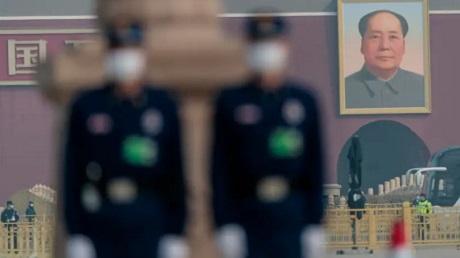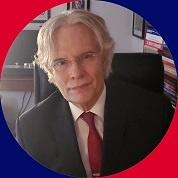 Tiananmen Square Massacre: Why it Matters.
Tiananmen Square Massacre: Why it Matters.
The seven weeks of mass demonstrations, which tested the elasticity of the “Chinese model” in the popular call for freedom and democracy in China, ended in a butchery.
Castro-Communism continues with its sham trials. Cubans that took part, or are accused of taking part, in the 11th of July Popular Uprising (11J) have been showcased through the dictatorship’s kangaroo courts. The massive 11J protests, where hundreds of thousands of Cubans, in a spontaneous fashion, broke their silence and publicly demanded freedom and an end to Marxist-Leninist rule in over 72 localities across Cuba, continue to haunt the island’s rulers. The Castro regime has, throughout the years, employed various tools to exert pressure and procure concessions from the United States. Immigration has been one mode. The Cuban political prison system has been another.
This year marks the 33rd anniversary of the Tiananmen Square Massacre. It is important to highlight, not just it’s significance as a tragic historical event, but understand that the results drawn from that seminal Sunday in 1989, still impact us today. Ironically, in Poland that same day, the first round of semi-free elections gave Solidarity, the Polish opposition movement, its first legislative victory. This event ignited a series of anti-communist demonstrations that contributed to its liberation and the fall of Soviet communism. Meanwhile, in China, the heinous acts committed by its ruling communist regime in the world’s largest square, consolidated the infamous “China model” and arguably the world’s most perfect dictatorship.
For seven weeks between April and June of that paradigmatic year, hundreds of thousands of Chinese carried out a succession of mass protests in over four hundred cities across the country, calling for democracy and freedom. The death of Hu Yaobang, a reformer and former General Secretary of the Chinese Communist Party (CCP) (1982-1987) who sought to extend the liberalization process beyond the economic sphere, was the spark that ignited the nationwide demonstrations. Zhao Ziyang, the third premier of China’s Marxist regime (1980-1987) and the CCP general secretary that succeeded Yaobang (1987-1989), shared his predecessor’s interest in expanding spaces of liberty into the political and civil realm. Ziyang’s support for the pro-democracy protests that led up to and culminated in the Tiananmen Square atrocity where over three thousand people were killed, and ten thousand wounded (just in that plaza in Beijing), led to his removal from power, arrest, and a fifteen-year sentence.
National Socialism in Germany, not just Lenin’s NEP, were accurate historical references. These examples of what state capitalism can do for totalitarian socialist regimes (yes, Nazism is a variant of socialism) were strong agents of persuasion that post-Mao China was ready for this modernization experiment. Deng astutely realized this and charted a course that did not include a democratic transition. Politicians like, Yaobang and Ziyang, and millions of Chinese citizens believed that the economic can transform the political. Their error was to misdiagnose China’s dictatorship.
Modernization theory tells us that economic expansion amplifies social pressure calling for democracy that, eventually, makes its way into the autocratic political circle. This is true for non-democratic regimes of the authoritarian type (Taiwan, South Korea, Greece, Brazil, Spain, etc.). Communist and fascist dictatorships are totalitarian. These dictatorial variants of total domination, where the economic, political, military, and social components are all under the control of a dictatorial state/party fused regime, are never receptive to economic fortification (modernization) and democratization.
Next time a well-meaning person advocates engaging with socialist regimes as a means to bring about political and civil liberties, remind them about Tiananmen Square on June 4, 1989.
©The Cuban American Voice. All rights reserved. Reproduction is prohibited without express permission.
 🖋️Author Julio M. Shiling
🖋️Author Julio M. Shiling
Julio M. Shiling is a political scientist, writer, columnist, lecturer, media commentator, and director of Patria de Martí and The CubanAmerican Voice. He holds a master’s degree in Political Science from Florida International University (FIU) in Miami, Florida. He is a member of The American Political Science Association, The PEN Club (Cuban Writers in Exile Chapter) and the Academy of Cuban History in Exile.
Follow Julio on:
📚Published books 📺In the media 👨🏫 Conferences and Symposiums 🎙️Podcast The Shiling Summary

